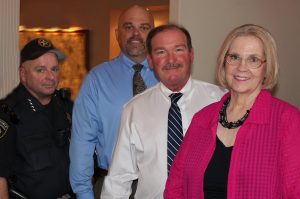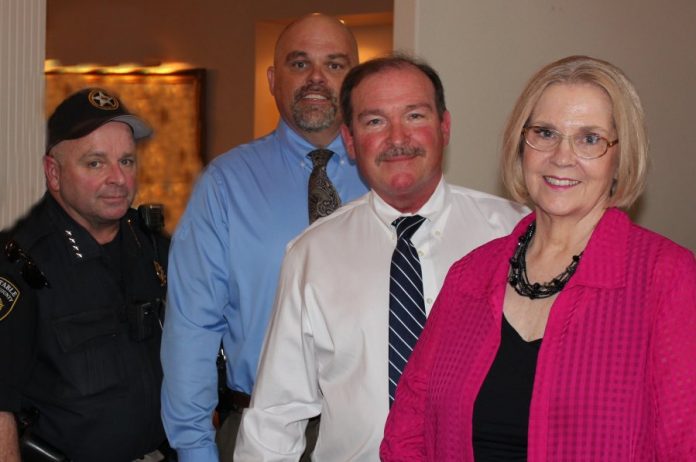
On Friday afternoon, a group assembled at the Point Noble estate of Ken and Pat Hodge in Flower Mound. They were there to hear from Denton County District Attorney Paul Johnson and the DA’s office special investigator Brian Wolfe, about Internet scams, telephone frauds and other sinister rackets being used by hustlers against unsuspecting, and often naïve, victims.
My wife, Annette, organized the event after an experience she had recently in which an Internet scam was attempted on her. About a month earlier, she and I attended the same presentation at a Republican function in Denton in which similar con games were discussed. Therefore, when Annette found herself as a potential victim of a scam, she felt that more people should be made aware of just how cunning some of these thieves are.
After Mr. Johnson gave the opening remarks to residents from various areas in the county, he turned the floor over to Mr. Wolfe. Using a PowerPoint presentation, Wolfe provided several scenarios to show how often people are defrauded out of their savings. To be forewarned is to be forearmed, which may save unsuspecting potential victims a lot of grief.
The following are some examples of the type of schemes used to defraud decent people who may be looking for love in all the wrong places.
One variety of scams takes advantage of people looking for romantic partners, often via dating websites, apps, or social media, by pretending to be prospective companions. They play on emotional triggers to get their victims to provide money, gifts or personal details. Dating and romance scams often take place through online dating websites, but scammers may also use social media or email to make contact. They have even been known to telephone their victims as a first introduction. Scammers typically create fake online profiles designed to lure you in. They may use a fictional name, or falsely take on the identities of real, trusted people such as military personnel, aid workers or professionals working abroad.
Dating and romance scammers will express strong emotions for you in a relatively short period of time, and will suggest you move the relationship away from the website to a more private channel, such as phone, email or instant messaging. They often claim to be from other countries, but travelling or working overseas. Scammers will go to great lengths to gain your interest and trust, such as showering you with loving words, sharing “personal information” and even sending you gifts. They may take months to build what may feel like the romance of a lifetime and may even pretend to book flights to visit you, but never actually come.
Once they’ve gained your trust and your defenses are down, they will ask you (either subtly or directly) for money, gifts or your banking/credit card details. They may also ask you to send pictures or videos of yourself, possibly of an intimate nature. Often the scammer will pretend to need the money for some sort of personal emergency. For example, they may claim to have a severely ill family member who requires immediate medical attention such as an expensive operation, or they may claim financial hardship due to an unfortunate run of bad luck such as a failed business or mugging in the street. The scammer may also claim they want to travel to visit you, but cannot afford it unless you are able to lend them money to cover flights or other travel expenses.
To protect yourself from these scams, never send money to someone you haven’t met in person. Always consider the possibility that the approach may be a scam, particularly if the warning signs listed above appear. Try to remove the emotion from your decision making no matter how caring or persistent the “prospective partner” is. Be cautious when sharing personal pictures or videos with prospective partners, especially if you’ve never met them before. Scammers are known to blackmail their targets using compromising material. Be wary of requests for money. Never send money or give credit card details, online account details, or copies of important personal documents to anyone you don’t know or trust. Avoid any arrangement with a stranger that asks for up-front payment via money order, wire transfer, international funds transfer, pre-loaded card or electronic currency, like Bitcoin. It is rare to recover money sent this way. Do not agree to transfer money for someone else: money laundering is a criminal offense.
If you think you’ve been a victim of a scam you can contact the Denton County District Attorney’s Special Crimes Unit at 940-349-2725.



















